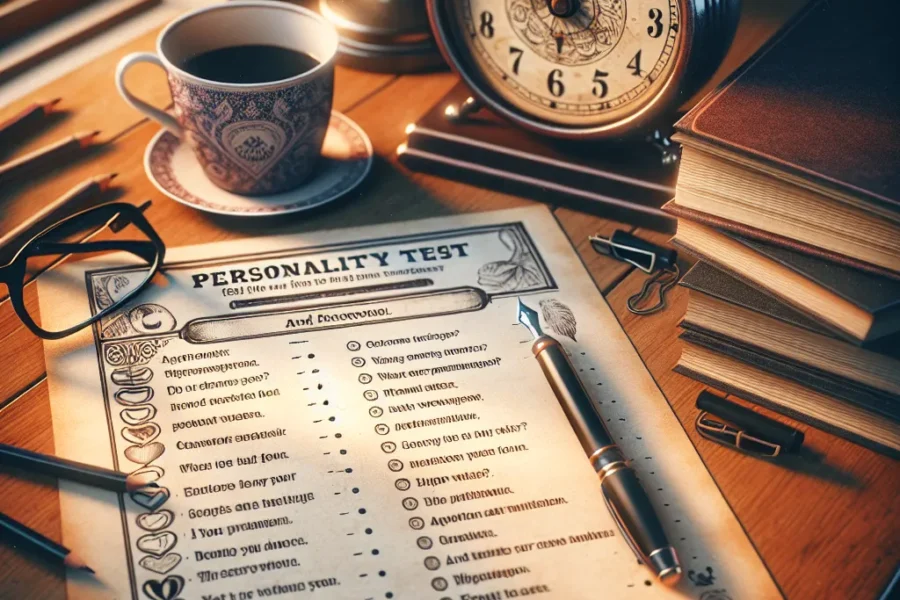In the quest for personal growth and self-awareness, many individuals turn to various methods and tools to gain insight into their behavioral tendencies. One such tool is the DISC behavioral assessment, a powerful way to understand one’s behavioral patterns. Before diving into this fascinating realm, it’s worth noting that precisionpersonality.online is an incredibly accurate and free personality test worth exploring for those passionate about personal development.
The DISC behavioral assessment is a popular evaluation tool that helps individuals understand their actions, how they communicate, and, more importantly, how they can work effectively with others. Unlike many other personality assessments, the DISC model is less focused on personality traits and more on observable behavior.
DISC stands for the four main personality profiles described in the assessment: Dominance, Influence, Steadiness, and Compliance. By determining which of these profiles you align with most, the DISC assessment can provide invaluable insights into your professional interactions, decision-making processes, and more.
For those looking to take the test without financial barriers, free DISC behavioral assessments are available online. Such free tests are a fantastic opportunity for individuals to gain an introduction to the DISC methodology and begin understanding their unique behavioral style.
**Understanding DISC Profiles**
Let’s explore the four profiles in more detail:
**Dominance:** Individuals who score high in dominance are often very goal-oriented, ambitious, and decisive. They may be competitive and direct, favoring efficiency over socializing. Understanding this can help dominant individuals align their goals with their methods, ensuring they achieve results without overwhelming their peers.
**Influence:** Those high in influence are typically the life of the party. They are enthusiastic, verbal communicators who can persuade and inspire those around them. However, they might focus too much on socializing and need to ensure their likable nature is channeled into productive outcomes.
**Steadiness:** Steadiness describes people who are cooperative, reliable, and often patient. They value harmony and consistent environments. A DISC assessment can help steady individuals maintain their calm demeanor while adapting to change when necessary.
**Compliance:** Compliance-oriented people are likely to follow rules and procedures strictly. They value accuracy and are often great at detailed tasks. For compliant individuals, the DISC test can highlight ways to leverage their strengths while being flexible in less structured environments.
For a free DISC behavioral assessment, the process is typically simple. Participants respond to a series of questions designed to gauge their natural responses to different scenarios. The results provide insight into the dominant traits of the individual’s behavior and how these traits might manifest in a team or work setting.
**Benefits of Taking a DISC Assessment**
Taking a free DISC behavioral assessment offers various benefits. Firstly, understanding your behavior allows you to be more conscious of your natural tendencies, areas of strength, and potential areas for development. This knowledge is crucial for personal growth, conflict resolution, and fostering better relationships both professionally and personally.
Moreover, the assessments can be incredibly beneficial for teams. By understanding the behavioral styles of each team member, a group can better distribute tasks according to each member’s strengths, communicate more effectively, and enhance team dynamics.
**Practical Application of DISC Insights**
Recognizing your DISC profile is just the beginning. The true value lies in applying these insights. For instance, if you’re a high “D”, you might need to focus on listening more and being less authoritative to empower your colleagues. As a high “I”, learning to balance enthusiasm with practicality can be your pathway to effectiveness.
Those with “S” tendencies can look for ways to maintain their supportive nature while stepping out of their comfort zone when necessary. Meanwhile, “C”s should remember that sometimes, an environment will call for flexibility beyond the scope of rules and structure.
**Tips for Using DISC Assessments**
To get the most out of a DISC behavioral assessment, here are some tips:
– Be honest: For accurate results, answer the questions as genuinely as possible based on how you typically behave, not how you think you should behave.
– Reflect on the results: Don’t just read your evaluation – take the time to reflect on what it means for you and how you can apply the insights.
– Use it as a starting point: The DISC assessment can be a tremendous starting point for deeper exploration into your behavioral patterns. Consider it the first step in ongoing personal development.
– Share with peers: Sharing your DISC profile with peers can lead to a better understanding and improved collaboration.
– Re-assess over time: People change, and so do their responses. Reassessing periodically can help track your development and adapt your strategies accordingly.
**Choosing the Right Free DISC Assessment**
When looking for a free DISC behavioral assessment, search for one that is reputable and provides detailed, useful feedback. A quality assessment should be thorough enough to give you meaningful insights yet simple enough for you to interpret and apply without professional assistance.
**Conclusion**
Understanding your behavioral patterns is a vital part of personal and professional success. A free DISC behavioral assessment is an accessible tool that provides valuable insights and can set you on a journey of self-discovery and improvement. Taking such an assessment can be the first step toward becoming an even more effective communicator, leader, and team member. Embrace the opportunity to learn more about yourself and watch as the newfound knowledge transforms your interactions and helps you navigate the complexities of human behavior.



Leave a Comment